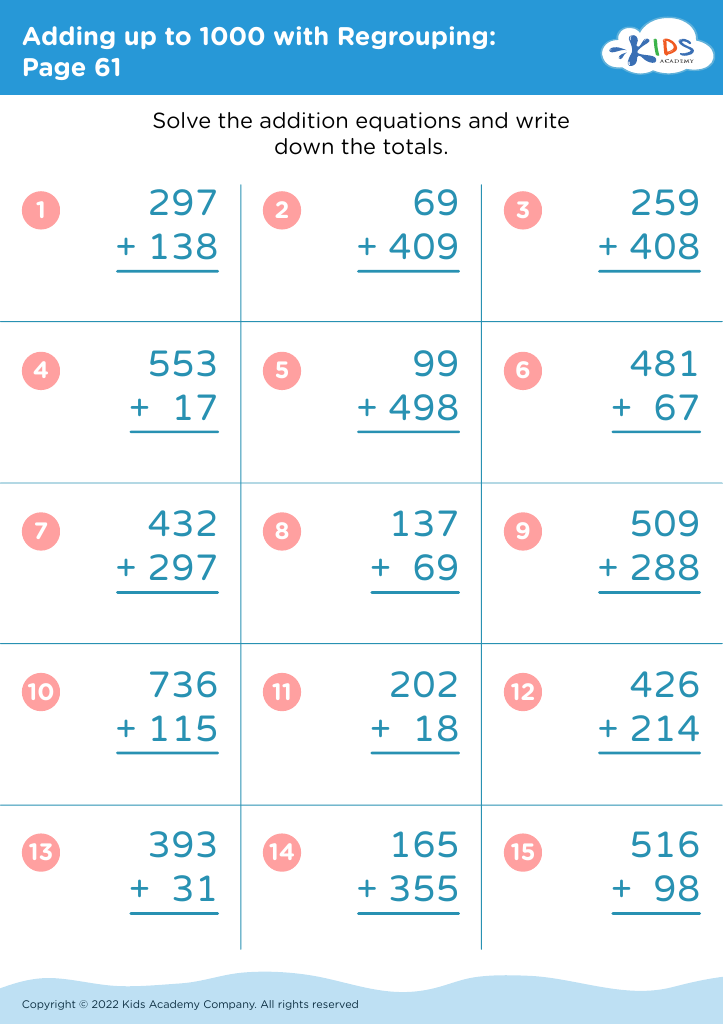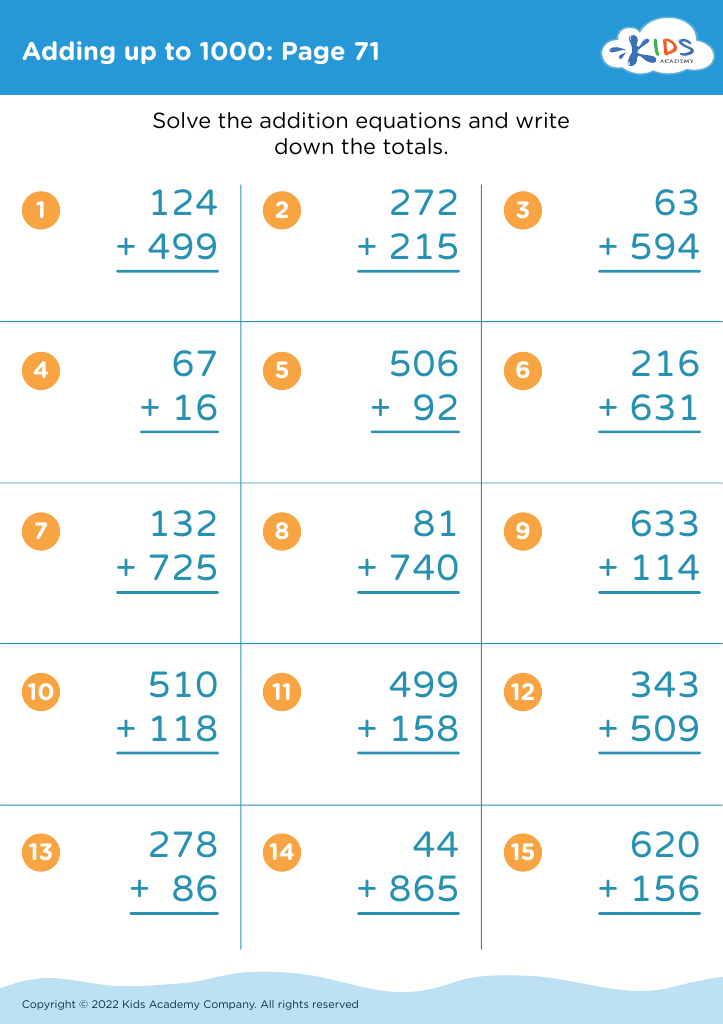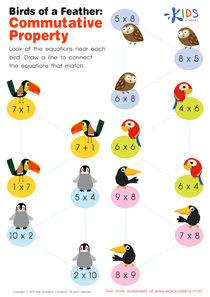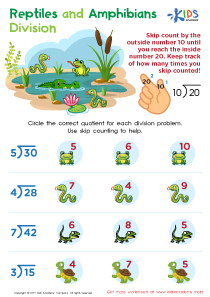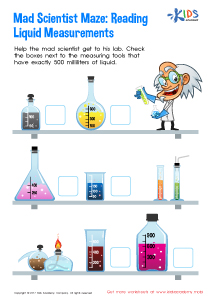Problem-solving abilities Grade 3 Addition & Subtraction Worksheets
9 filtered results
-
From - To
Unlock your child's potential with our Grade 3 Addition & Subtraction Worksheets, designed to enhance problem-solving skills. Tailored for third graders, these worksheets present engaging, challenging scenarios that foster critical thinking and analytical skills. Each activity encourages children to apply their addition and subtraction knowledge to real-life problems, promoting mastery and confidence. Our resources are perfect for classroom use or at-home practice, ensuring consistent progress in a supportive environment. Enable your child to tackle math problems with ease and build a solid foundation for future learning. Boost problem-solving abilities today with our expertly crafted worksheets!
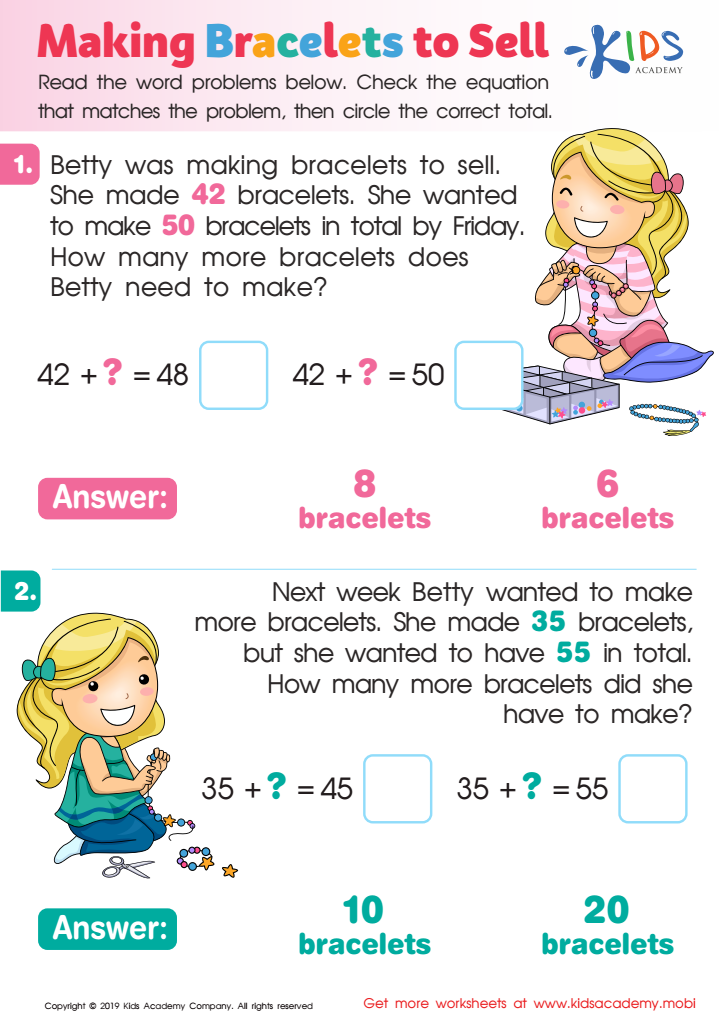

Making Bracelets to Sell Worksheet
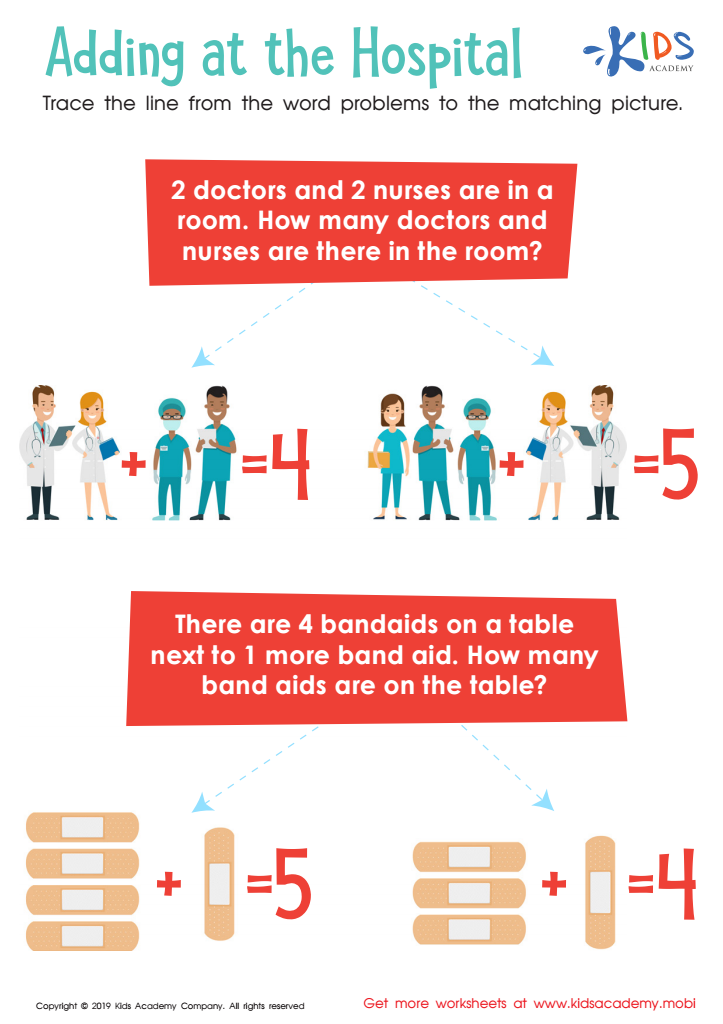

Adding at the Hospital Worksheet
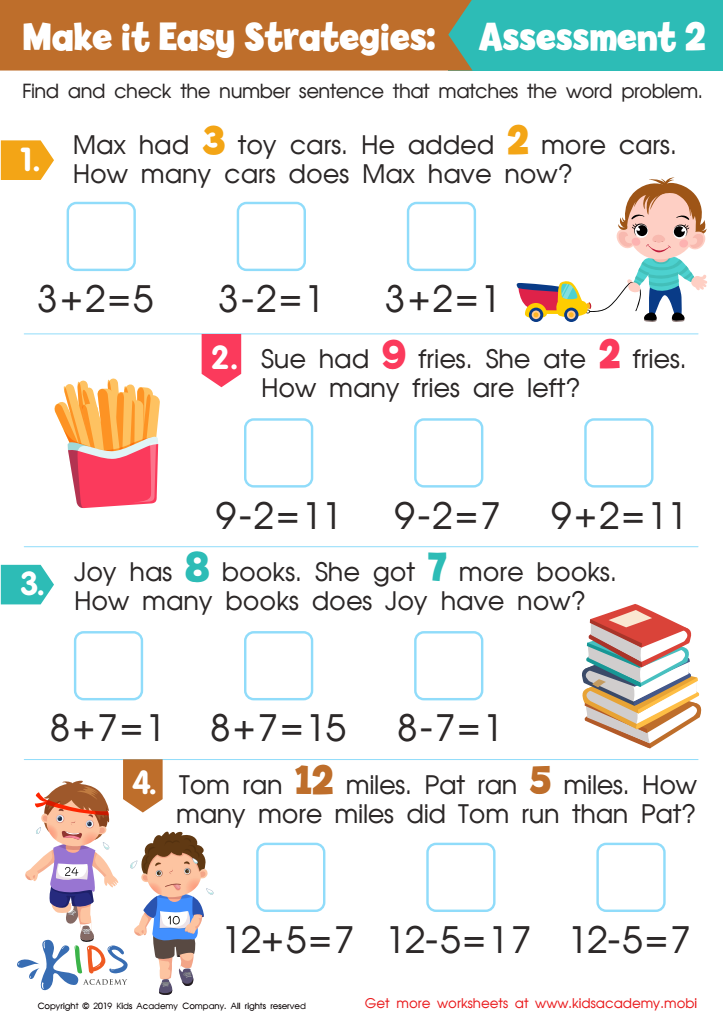

Make it Easy Strategies: Assessment 2 Worksheet
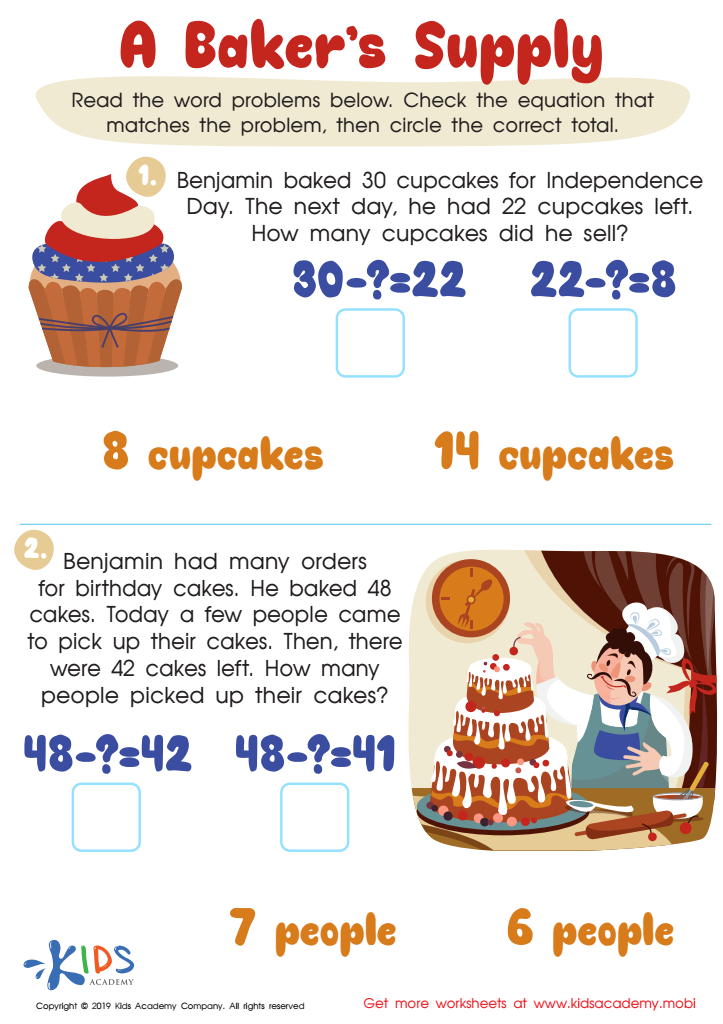

A Baker's Supply Worksheet
Caring about problem-solving abilities in Grade 3 Addition & Subtraction is crucial for several reasons. First, these foundational math skills are essential building blocks for more advanced mathematics. Without a firm grasp of addition and subtraction, students will struggle with more complex operations like multiplication, division, and fractions that they will encounter in later grades.
Secondly, problem-solving encourages critical thinking and logical reasoning. When children solve math problems, they learn to break down a problem, think systematically, and find efficient solutions. These skills are not only applicable to math but also valuable in everyday life situations, such as handling money, planning, and much more.
Additionally, strong problem-solving capabilities boost a child’s confidence and encourage a positive attitude toward learning. Success in solving math problems can make students feel more competent and confident, motivating them to tackle challenges in other subjects as well. This can help create a lifelong love of learning rather than a fear of complex subjects.
Lastly, parents and teachers who focus on developing problem-solving skills are nurturing more than just academic ability; they are helping to shape well-rounded individuals who can think independently, make decisions, and approach problems creatively in all areas of life. By promoting these skills early on, we set children up for long-term success.
 Assign to My Students
Assign to My Students

